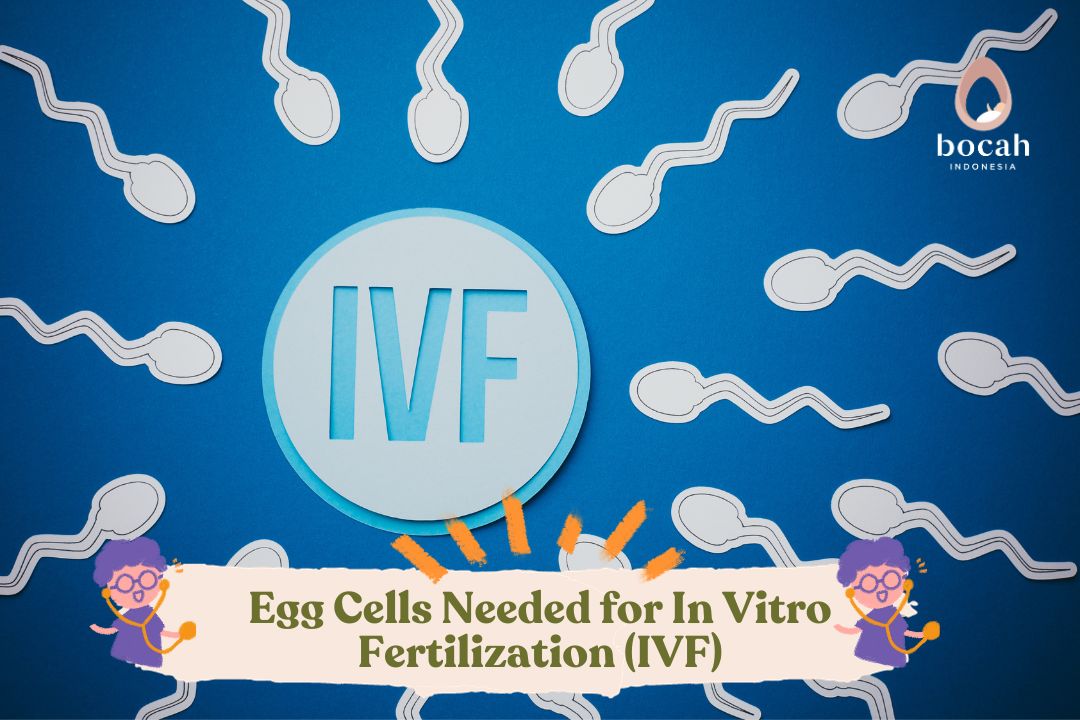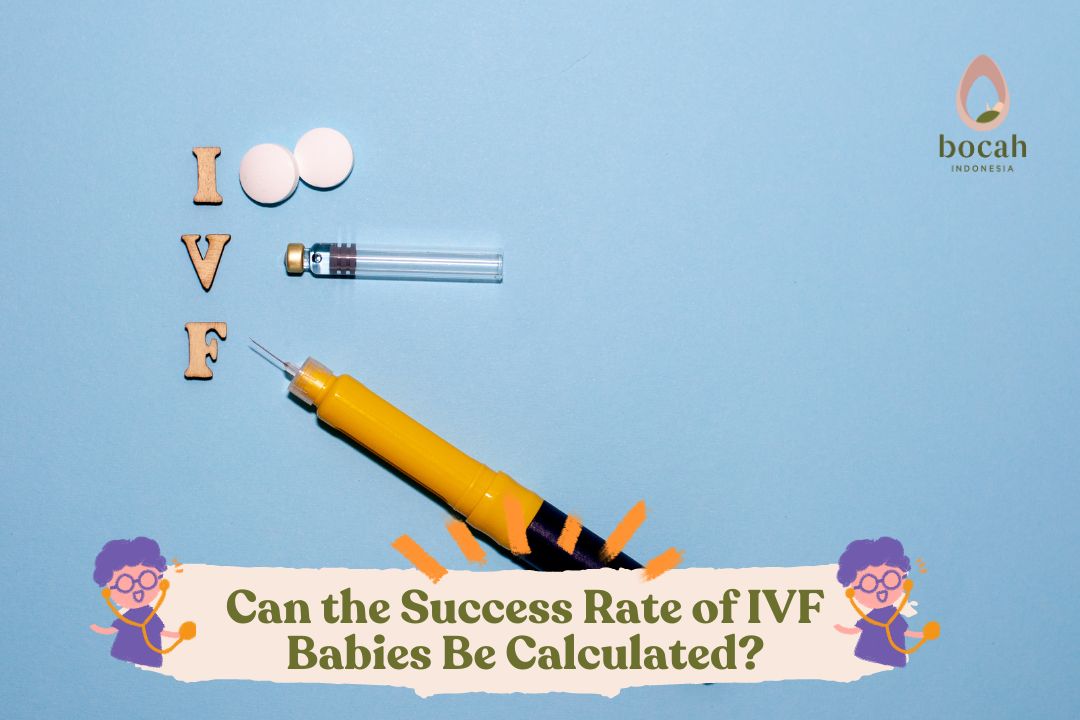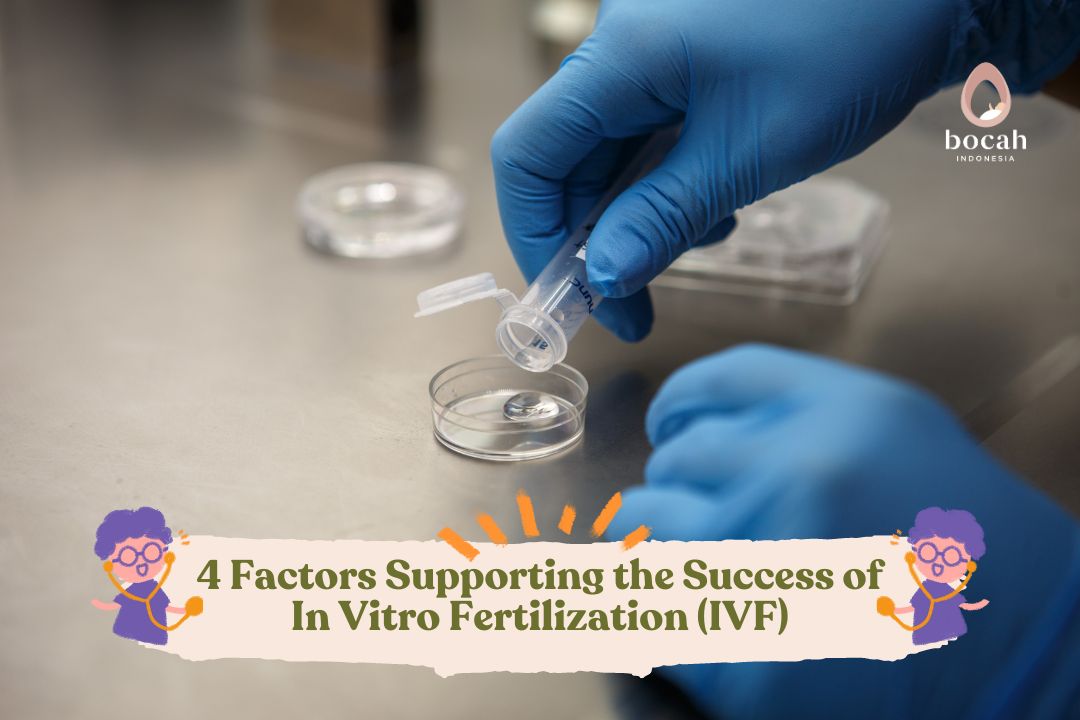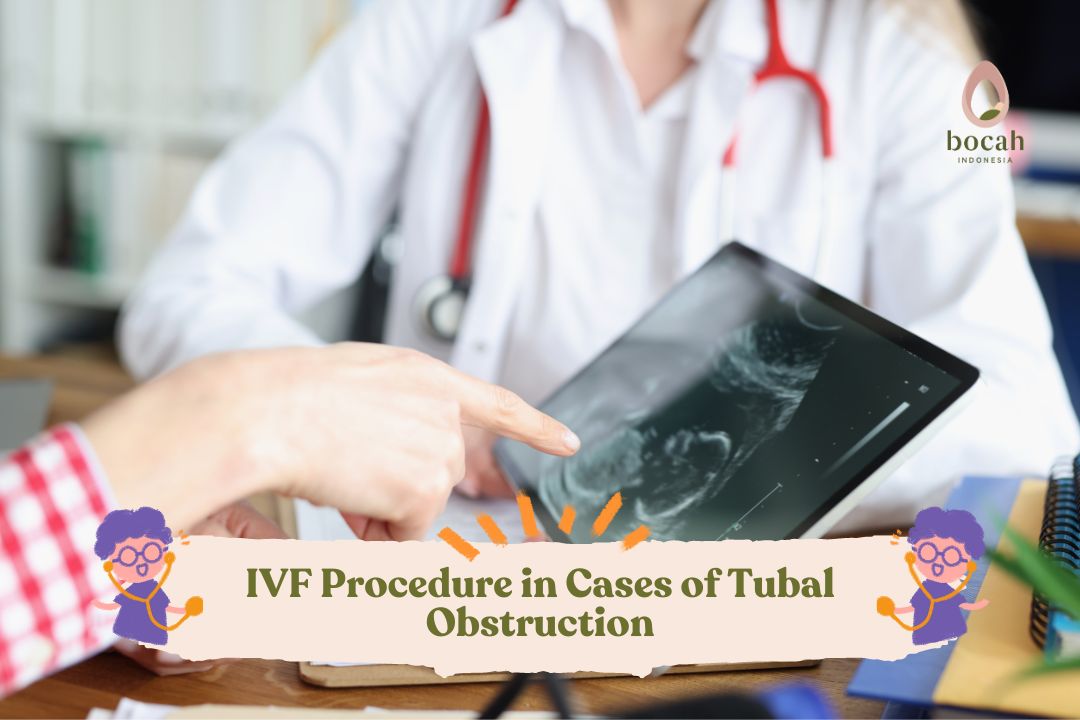Supportive Hormones for the Success of IVF
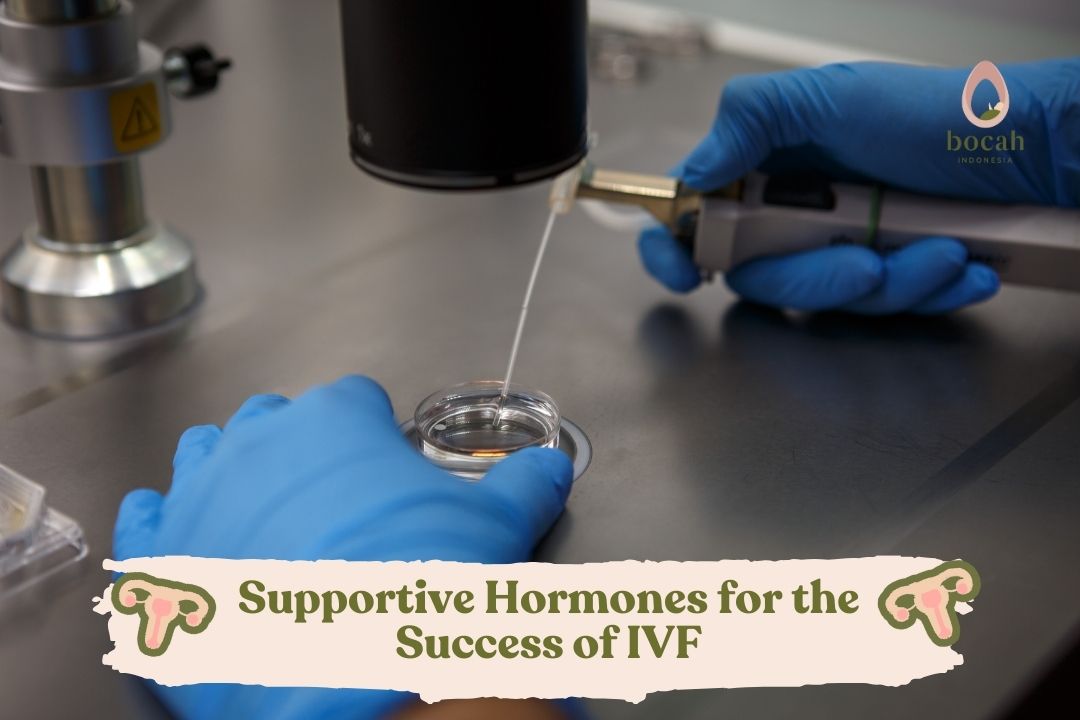
Mother’s hormones play a crucial role in the success of the IVF program. Read the complete explanation below.
Hormones are very important in the In Vitro Fertilization (IVF) process or IVF program because they help control treatment and increase the chances of success for mothers to become pregnant. In IVF, the menstrual cycle needs to be carefully regulated to ensure that the eggs mature at the right time for egg retrieval. Therefore, doctors prescribe fertility hormones to help regulate this cycle. Next, you might be wondering, which hormones should be consumed to achieve IVF success, when to take them, and if they are really necessary? Find the answers here.
The Role of Hormones in the IVF Program
There are several reasons why women may not be able to conceive, typically one of them is due to infertility issues. This means there are problems in the reproductive system that make it difficult for mothers to ovulate and produce healthy eggs. To produce healthy eggs, the body needs a well-functioning reproductive system, which is controlled by certain hormones.
In the IVF program, various hormones are needed to regulate the cycle, prevent premature ovulation, and stimulate the ovaries to produce an adequate number of eggs. These eggs will later be fertilized outside the woman’s body. However, the influence of hormones on the failure of the IVF program can also be one of the contributing factors.
Tanya Ferly tentang Promil?
Therefore, for parents who may be considering undergoing an IVF program, it is important to understand more about the supportive hormones in the IVF program.
Types of Important Hormones in the IVF Program
There are several hormones that affect a mother’s ability to become pregnant and play a role in IVF. These hormones include AMH, LH, FSH, progesterone, estrogen, prolactin, and TSH. Here is a complete explanation of each.
1. AMH (Anti-Mullerian Hormone)
AMH is a hormone that plays a role in the development of a baby’s reproductive organs. AMH levels differ between men and women. High AMH levels in men can inhibit the development of women’s reproductive organs.
In women, AMH is produced in the ovaries and helps form egg cells. An AMH blood test is performed at the beginning of the IVF process to assess the egg reserve. This is important because AMH levels typically begin to decline after the age of 25.
During the AMH test, a blood sample is taken to assess the hormone levels in the body. The results can be high (>1.0 ng/mL) or low (<1.0 ng/mL), each indicating an adequate or insufficient egg reserve, respectively.
2. Luteinizing Hormone (LH)
LH is a hormone that plays a crucial role in the reproductive process. This hormone is present in both fathers and mothers. In fathers, LH increases the production of testosterone, while in mothers, changes in LH levels trigger ovulation. Moreover, LH also plays a role in supporting pregnancy. This hormone activates the release of hormones necessary to support the early stages of pregnancy.
LH triggers the formation of a structure called the corpus luteum in the ovaries. This structure stimulates the production of progesterone hormone, which is essential for supporting the early stages of pregnancy. It is important to understand that the level of LH in the body can change with age. Therefore, knowing the level of LH in the body during pregnancy is very important.
3. Follicle-Stimulating Hormone (FSH)
FSH is a follicle-stimulating hormone that induces the production of mature egg cells in the ovaries. FSH can also be injected and used in IVF procedures to address infertility issues. Similar to LH, FSH is produced by the pituitary gland located in the brain. The brain can detect changes in estrogen levels that occur with age. In the IVF program, an FSH test is performed on the third day of the menstrual cycle to assess whether the mother’s basic hormone levels are normal (>9). If the levels increase (9-20), it indicates a low egg reserve. The level of FSH can also provide clues about the mother’s body’s response to fertility drugs.
4. Progesterone Hormone
The ovaries produce progesterone hormone, which increases during the ovulation process. Its main role is to prepare the uterine lining called the endometrium so that it is ready if pregnancy occurs.
When pregnancy does not occur, progesterone levels will decrease, triggering the onset of menstruation. Progesterone hormone plays a crucial role in keeping the endometrium ready to receive and support the egg if fertilization occurs. If pregnancy occurs, the production of progesterone will continue for an additional 8-10 weeks to ensure the healthy development of the embryo.
Therefore, in assisted reproductive procedures and IVF programs, progesterone is often prescribed to prevent its decrease and to help prepare the uterine lining.
This increases the chances of successful embryo implantation and supports healthy development after embryo transfer. If the doctor prescribes progesterone, the mother will usually start taking it immediately after egg retrieval, unless otherwise instructed by the doctor. There are several methods for progesterone hormone treatment, such as injections, vaginal gels, and pills. However, pills are often less effective because the stomach has limited hormone absorption.
5. Estrogen Hormone
Estrogen, which is part of the estradiol hormone, is a female sex hormone produced in the ovarian follicles. Its main function is to stimulate and maintain the thickness of the uterine lining, especially to prepare it to become thicker after fertilization, so it can support a healthy pregnancy. Estrogen levels in a woman’s body fluctuate throughout the menstrual cycle, reaching their peak during ovulation. During menopause, there is a significant decrease in estrogen levels compared to earlier stages of life.
In the IVF program, mothers may be prescribed estrogen supplements to maintain hormonal balance. This is necessary because estrogen levels can change due to hormonal influences and other reproductive procedures. The goal is to ensure the appropriate level of estrogen for safe implantation and the smooth progress of pregnancy.
6. Prolactin Hormone
The prolactin hormone is produced in a mother’s body during pregnancy and while breastfeeding, as it plays a role in the production of breast milk. Although high levels of prolactin during pregnancy sound good, it is not always a positive sign. Excessive prolactin can affect the development of ovarian follicles and the uterine lining. When breastfeeding occurs, prolactin can inhibit a woman’s reproductive ability. So, elevated levels of prolactin in a non-pregnant or non-breastfeeding mother may indicate a hormonal imbalance. That’s why it’s important to monitor prolactin levels when considering IVF treatment. Normal prolactin levels in non-pregnant women are less than 25 ng/mL. If the prolactin level is higher than that, the mother may be prescribed medication to suppress prolactin production and increase the chances of pregnancy.
7. Thyroid Stimulating Hormone (TSH)
Thyroid-stimulating hormone (TSH) is another hormone that affects the reproductive system and a mother’s ability to conceive. Specifically, a balanced level of thyroid hormone ensures that the fertilization process occurs successfully and the mother does not experience ovarian dysfunction, polycystic ovarian syndrome, and other reproductive or pregnancy-related problems.
Therefore, undergoing a TSH test to determine the level of this hormone can be very important before starting IVF. This test involves taking a blood sample and can be performed in the morning. The normal TSH level for non-pregnant women is <5.0 mIU/L.
8. Human Chorionic Gonadotropin (hCG)
Human chorionic gonadotropin or hCG, is often referred to as the pregnancy hormone. This is because the hormone is produced when clinical pregnancy occurs and reaches its highest levels early in pregnancy. This hormone also signals that the mother is pregnant when taking a pregnancy test. Along with other hormone injections, this hormone supports the thickening of the mother’s uterine lining and the development of the embryo after embryo transfer.
So, those are the 8 hormones that play a role in the success of in vitro fertilization (IVF) programs. However, it’s important for both parents to know that IVF failures can vary depending on each patient’s condition. If you and your partner are considering or undergoing an IVF program, be sure to consult with a knowledgeable and experienced obstetrician. Stay healthy so that you can go through the IVF program with calm and happiness, making your dream of becoming parents a reality.
Source:
- Healthline. Luteinizing Hormone (LH) Test: What It Is and Why It’s Important. Diakses 2023. https://www.healthline.com/health/lh-blood-test
- Healthline.How Polycystic Ovary Syndrome (PCOS) Affects Fertility and What to Do. Diakses 2023. https://www.healthline.com/health/womens-health/pcos-and-fertility
- Healthline. Follicle-Stimulating Hormone (FSH) Test. Diakses 2023. https://www.healthline.com/health/fsh


